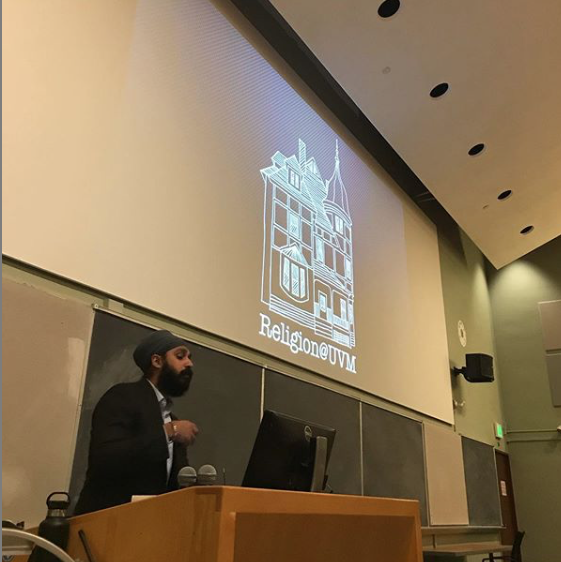On Monday, November 4th, the Religion Department held their final Religious Literacy Month event. The month was topped off with a great panel of faculty, answering questions ranging from religious literacy, to the age of Trump, and even job and internship opportunities for Religion majors at UVM.
The event started off with the faculty introducing themselves and a broad statement on what religious literacy means to them. Ilyse Morgenstein Fuerst opened with literacy as a social justice movement. She discussed how there’s many forms of literacy, including pre-literacy. She then went on to state that training people about religion as always being in the room is extremely vital. Then, Anne Clark noted that we must study religious past and history in order to make religious literacy more relevant in the present, thus creating a space of awareness and comprehension. Erica Andrus noticed in her large intro level classes that many students come in with barriers about religion, including that they only know that religion is about belief— but we learn that that is not the case. Tying these statements together, Kevin Trainor questions— what happens when religion is approached by what people do rather than what they believe? To wrap up, I think Vicki Brennan’s statement is also really important when approaching the subject of religious literacy. She states that learning about religion is about making the strange familiar, and the familiar strange. In order to learn and grow, we must knock down some preconceived notions and stereotypes of religion.
Then the event moved onto a question and answer session, which lasted for the majority of the event. To include a few, one person from the crowd, a UVM writing staff member, questioned if the religion department will see a decline in students because religion is declining in America. Professor Morgenstein Fuerst hopped onto this question fast, stating that saying religion is disappearing is a white idea, just because white American Christians are leaving religion, doesn’t meant anyone else is.
A recent UVM Religion grad asked: how do we facilitate a discussion in religious literacy without confusing people or upsetting them? Professor Morgenstein Fuerst notes that sometimes religious literacy discussions need to be used with a “velvet club.” Meaning, we should be gentle, understand where the other person is coming from, and help them to better comprehend. But of course, in toxic situations, a quick shut down on racist remarks is completely necessary.
Lastly, one student, a senior majoring in religion, says she feels empowered with her knowledge of religious literacy and she’s ready to share it with others. Empowerment like this can really make a huge difference.
So, even though Religious Literacy Month is over, we will keep learning and educating others on religious literacy. Because for some folks, religious literacy is a matter of survival. Like Liz Kineke said in her talk this month, religion is always in the room.


